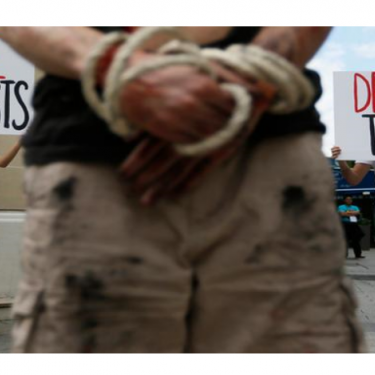Combined total of 128 years in prison for 10 Iranians with journalism links

Reporters Without Borders (RSF) condemns the exceptionally severe prison sentences that have just been passed in Iran on eight employees of a state video-sharing service, a jailed photojournalist’s mother, and a citizen-journalist. Totalling 128 years in prison, these sentences represent a new crackdown on the freedom to inform, RSF says.
A Tehran revolutionary court sentenced Mohammad Javad Shakori, the head of the Iranian state video-sharing service Aparat, to 12 years in prison on 24 October for producing and disseminated a sex education documentary for young people that asked children if they knew “how they were born.”
Shakori and seven of his employees – who were given 11-year prison sentences – were convicted of anti-government propaganda, publishing indecent content and inciting immorality. They have appealed. Aparat was created as an Iranian alternative to YouTube, which continues to be inaccessible in Iran.
In 2009, Shakori was accused by activists and former political prisoners of collaborating with the regime. In particular, they accused him of informing the authorities of the identity of Internet users who had posted information about the wave of protests they were organizing.
Farangis Mazloom , the mother of Soheil Arabi, an imprisoned photojournalist who was awarded the RSF Press Freedom Prize in the citizen-journalist category in 2017, was herself sentenced on appeal on 20 October to 18 months in prison on charges of “meeting and plotting against national security” and anti-government propaganda.
According to Mazloom, who was arrested in July, her son has just been transferred to “Security Section 2a” of Tehran’s Evin prison, where he is in solitary confinement. RSF has previously condemned the Iranian judicial system’s persecution of Arabi, as well as its persecution of his mother and the families of other journalists.
Finally, the writer and citizen-journalist Payman Farhangian has been sentenced to 38 years in prison on charges of anti-government publicity and “creating a group of more than two people on [the messaging service] Signal in order to endanger national security.” His lawyer says he has appealed against the sentence.
Although he lives in Iran, Farhangian was tried in absentia because he was not notified in advance about his trial, which was held at the end of August. After being arrested at his home in Kia Shahr, iin the northern province of Gilan, in connection with Instagram posts in support of the worker’s movement, he had been released pending trial on payment of an exorbitant sum of money as bail
“We condemn these extremely harsh sentences imposed after unfair trials, which constitute violations of press freedom and free speech,” said Reza Moini, the head of RSF’s Iran-Afghanistan desk. “The charges are complete fabrications. In Iran, there is nothing independent about the justice system, which is manipulated by the Revolutionary Guards and intelligence ministry officials.”
Iran is ranked 173rd out of 180 countries in RSF's 2020 World Press Freedom Index.



